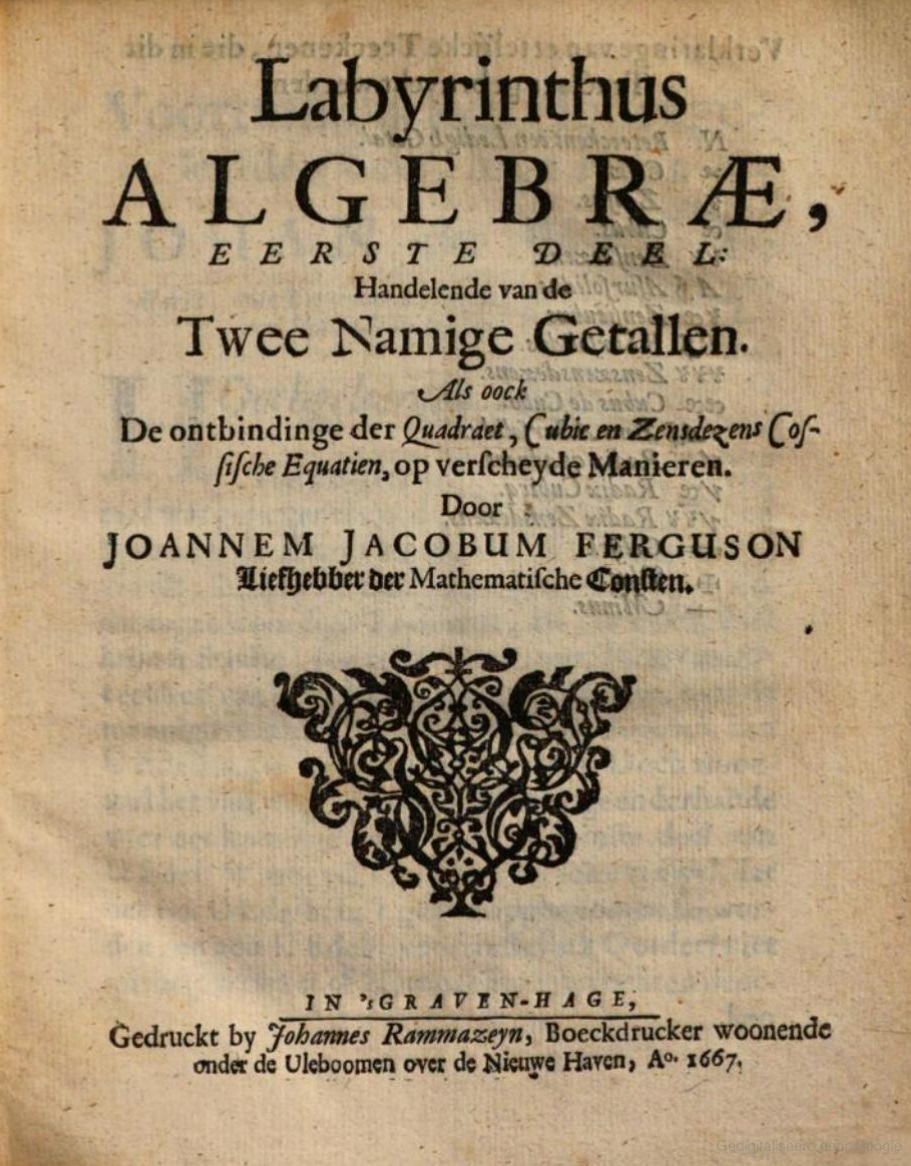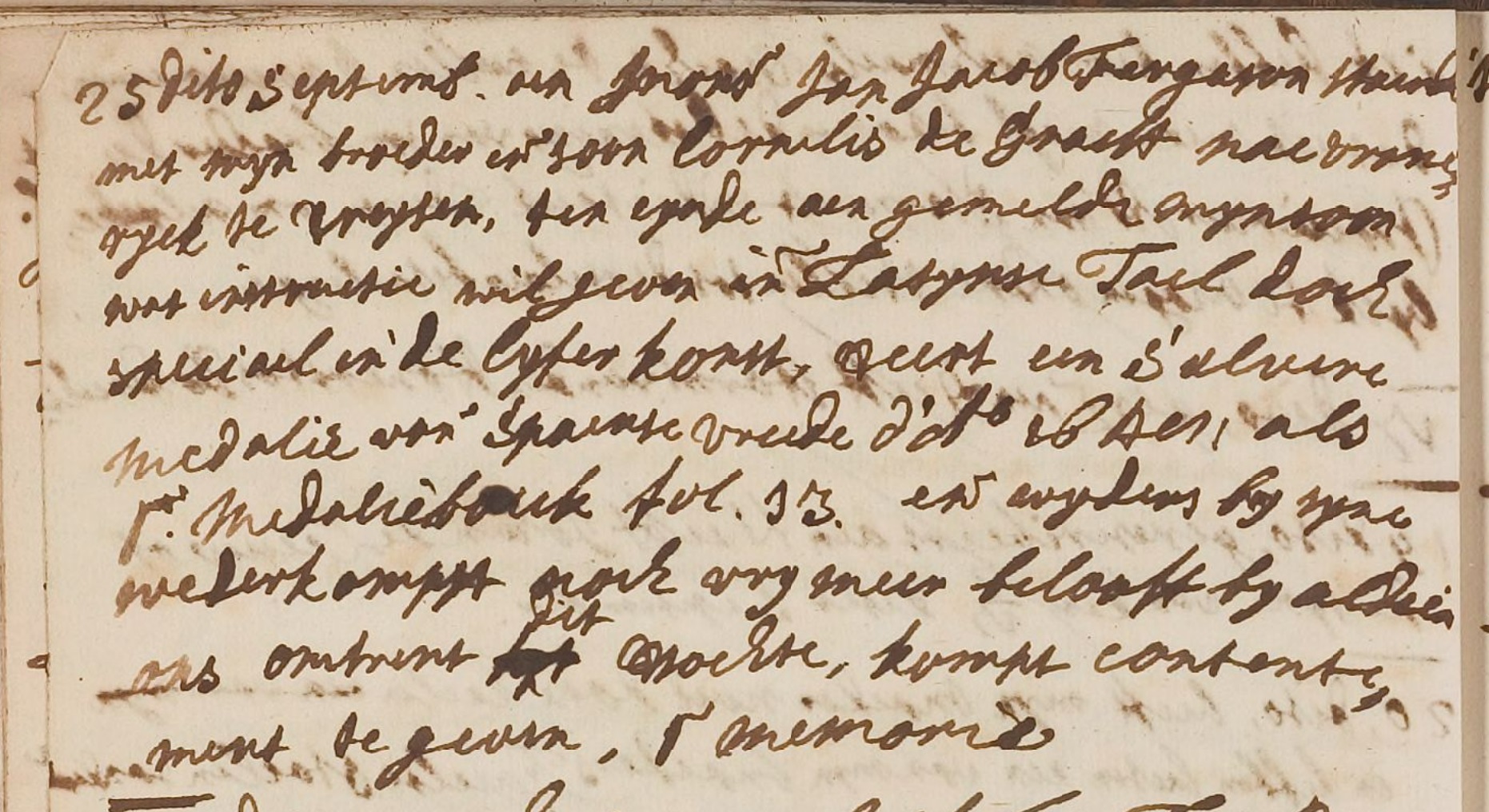
Catalogus librorum (…) Petri de Graaf (…), p. 35, no. 290* (Medici & Philosophici in Quarto)
This book is the most famous work of the Dutch mathematician Johan Jacob Ferguson (ca. 1630-1691) which had international resonance. Pieter entrusted Ferguson to follow his son Cornelis in his journey to Italy between 1686 to 1688 (Cornelis was accompanied by his uncle, Pieter’s brother Jacob) to be his private teacher of Latin and especially arithmetic (‘wat instructie wil geven in Latynse Tael doch speciael in de Cyfer konst’, ACA 76, inv nr. 205 (1685), 25 September). As a reward for his services, Pieter gave Ferguson a silver medal commemorating the Peace of Münster 1648, and he promised him other medals upon his return.


Before that, Ferguson had been the private tutor of Johan de Witt’s children and in 1690 he would also serve as the private teacher of Cornelis’s younger brother Jan (ACA 76, inv nr. 210 (1690), 14 July).
USTC record: https://www.ustc.ac.uk/editions/1804131
Browse through this book in Google books
Consult and download the annotated transcription of Pieter de Graeff's book auction catalogue here.
References/further reading:
C. Piccoli, Pieter de Graeff (1638-1707) and his treffelyke bibliotheek (Brill, 2025).
S.J. Rigaud (ed.), Correspondence of Scientific Men of the Seventeenth Century. Vol. 2 (Oxford: The University Press, 1841), passim.
Written by Chiara Piccoli